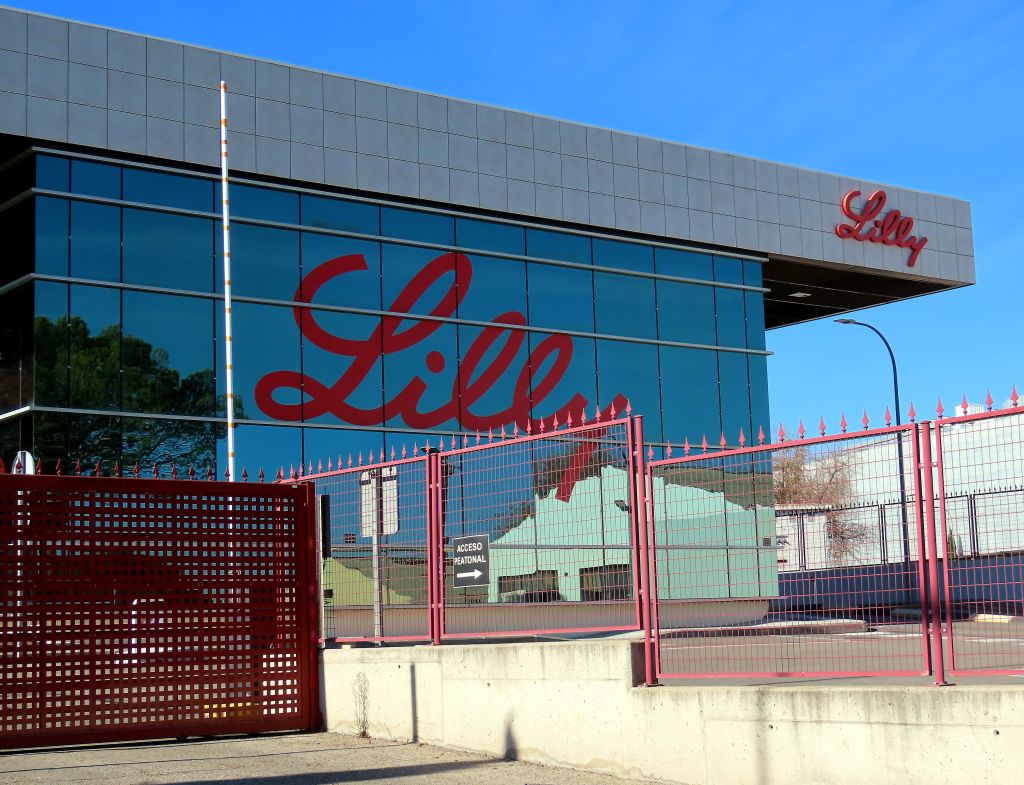
Eli Lilly & Co.’s bid for accelerated approval of its Alzheimer’s therapy donanemab was rejected by U.S. regulators, an unexpected setback for the drugmaker.
The Food and Drug Administration sent the company a complete response letter saying it would not give the early approval for the drug because not enough patients on the trial had received it for a full 12 months, Lilly said Thursday in a statement.
The agency wanted Lilly to provide safety data on at least 100 patients who had been on the drug for a year. Lilly’s application for accelerated approval was based on a relatively small mid-stage trial that allowed some patients to stop treatment after about six months.
“No other deficiencies were identified,” the company said.
Read More: How My Father’s Brain Helped Develop More Effective Treatment For Alzheimer’s
The setback won’t affect the company’s 2023 financial guidance or its plans to apply for regular approval for the drug later this year if an ongoing final-stage trial is successful, Lilly said. The company expects those results in the second quarter.
Lilly shares fell as much as 1.9% at the New York market open.
Little Sales Impact
Accelerated approval was never expected to lead to significant sales. The U.S. Medicare program has indicated that it won’t broadly cover amyloid-lowering Alzheimer’s drugs like donanemab without full FDA approval.
Still, Lilly officials had hoped to gain early approval for the drug. Rival Eisai Co. and partner Biogen Inc. got accelerated approval for their amyloid-lowering drug Leqembi earlier this month, and have already applied for full clearance.
“It is an unusual situation,” Lilly Chief Scientific and Medical Officer Daniel Skovronsky said in an interview. The company’s drug was quite effective at removing amyloid in the mid-stage trial, he said. Some patients stopped taking it after a few months because their amyloid levels had fallen so far. Others who responded more slowly continued on it for more than a year. If the drug had been less effective, the company wouldn’t have faced this issue, he said.
Read More: Why It’s Hard to Get the New Alzheimer’s Drug Lecanemab
Hopes for donanemab had been high after an earlier analysis of the trial showed the drug slowed cognitive decline by 32%. However, participants also had a 39% rate of brain swelling or bleeding compared to 8% of those on a placebo. Meanwhile, Eisai’s Leqembi slowed cognitive and functional decline by 27%. That drug gained FDA accelerated approval based on its ability to lower amyloid.
“The priority of course is to get the traditional approval,” said Skovronsky, who didn’t rule out the possibility the company could still go back and seek accelerated approval once it obtained more safety data. “Everything depends on our phase 3 trial.”
On Friday, Lilly and Boehringer Ingelheim reported more news from the FDA, saying the regulator accepted a supplemental new drug application for Jardiance. The diabetes drug, one of Lilly’s top sellers, is in testing for reducing the risk of kidney disease progression and heart-related deaths in adult chronic kidney disease patients.
—With assistance from Jonathan Roeder.
More Must-Reads from TIME
- Cybersecurity Experts Are Sounding the Alarm on DOGE
- Meet the 2025 Women of the Year
- The Harsh Truth About Disability Inclusion
- Why Do More Young Adults Have Cancer?
- Colman Domingo Leads With Radical Love
- How to Get Better at Doing Things Alone
- Michelle Zauner Stares Down the Darkness
Contact us at letters@time.com